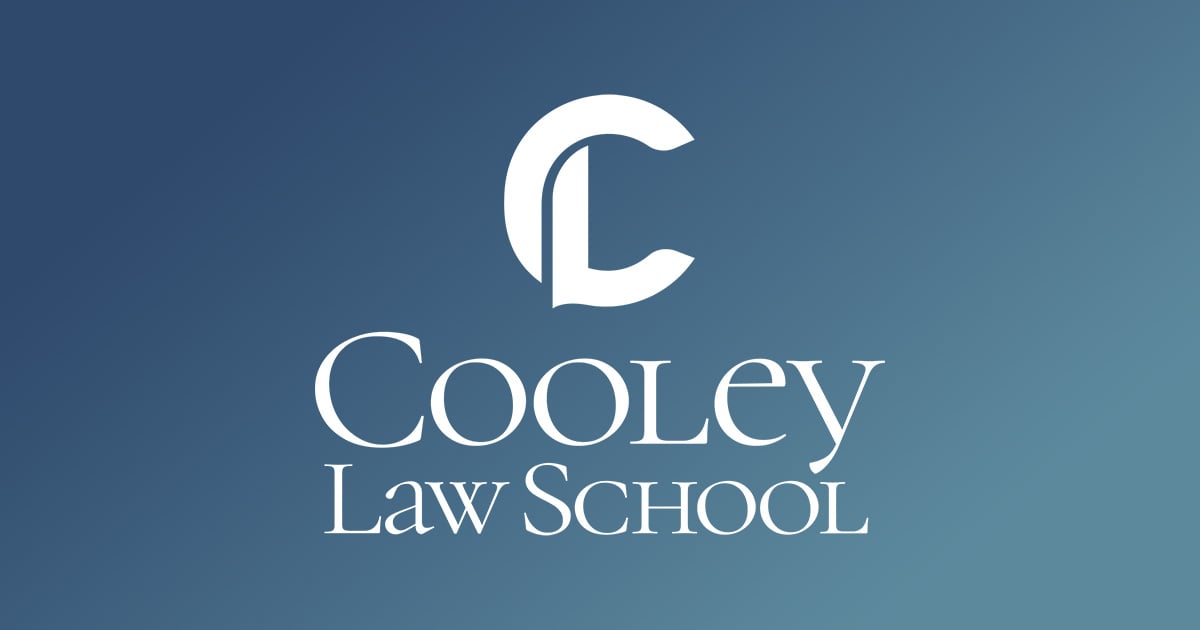Cooley Law School's Innocence Project and Warner Recognize National Wrongful Conviction Day with Exoneree Panel Event
On Monday, Oct. 2, the Cooley Law School Innocence Project, in partnership with Warner Norcross + Judd LLP, recognized National Wrongful Conviction Day with a panel discussion featuring Project exonerees at Warner’s Grand Rapids office. Panelists included exonerees Kenneth Nixon, Gilbert Poole, George DeJesus, and his brother, Melvin DeJesus. Nixon and Poole were exonerated in 2021, while the DeJesus brothers were exonerated in 2022. During the event, several panel attendees asked questions, expressed sympathies to the exonerees and their families, and applauded their perseverance and hard work. Exonerees shared the circumstances surrounding their false convictions, what helped them get through their sentences, and their hardships and successes after their exonerations. “Once the charges were processed, my faith went right out the window,” said Nixon. “I didn’t understand how I could be in this situation by no will of my own, no wrongdoing of my own. The logical mind thinks that truth and honesty will play itself out in the courtroom; that’s what we’re taught to believe – that once it makes it to the courtroom, they’ll get it right. In reality, it’s a gut-punch after gut-punch after gut-punch. It was bigger than just fighting for my freedom. I had to prove to my sons that no matter what, when you’re right, you stand up for yourself.” Nixon, who has started his own non-profit called the Organization of Exonerees, added: “It was hard, but I’m thankful that I’m here and trying to make change within the system.” “Sometimes the zealousness for conviction gets in the way of the actual truth of the matter,” said Poole, who spent 32 years in prison – the longest of the featured panelists. “That’s where I fill in the cracks, because everybody wanted a conviction, wanted to resolve the case so badly, that the rules took over the actual facts.” Melvin DeJesus, who was arrested at the hospital while his daughter was being born, shared how his perseverance while in prison helped him on his path to freedom. “How can I stop fighting when my daughter is still out there? Anything that came at me, I thought there was a choice: I can go home to my family or I can go down that other road, and it’s not a nice road.” George DeJesus, one of the exonerated brothers, added: “It’s a long process. We’ve been out a year and a half, two years, and the only time I’m not thinking about it is when I’m with my family.” In its 10th year, Wrongful Conviction Day began as an effort of the Innocence Network, an affiliation of organizations dedicated to providing pro-bono legal and investigative services to individuals seeking to prove innocence of crimes for which they have been convicted. They work to redress the causes of wrongful convictions and support he exonerated after they are freed. “The last few years there have been conviction integrity units that have been working statewide and at the attorney general’s office, as well as several local prosecutor’s offices,” said Tracey Brame, director of Cooley Law School’s Innocence Project. “What’s important is how they streamline the process for investigating these cases instead of our deficient appellate system. The leaders of those units have done a really good job of changing the mindset of even the prosecutors in their offices because there’s the notion that they never make a mistake, and they must’ve been guilty or it’s too late. There are strong leaders in conviction integrity units that are helping us take another look at these cases.” Established in 2001, the Cooley Law School Innocence Project is the only post-conviction DNA innocence organization in the State of Michigan. Since its inception, the office has screened over 6,000 cases and is responsible for the exoneration of eight individuals: Kenneth Wyniemko (2003), Nathaniel Hatchett (2008), Donya Davis (2014), LeDura Watkins (2017), Corey McCall (2021), Kenneth Nixon (2021), Gilbert Poole (2021) and George DeJesus (2022). The Project also helped to exonerate Lacino Hamilton and Ramon Ward, both in 2020, and Terance Calhoun and Melvin DeJesus, both in 2022. “Treating people with dignity and making sure that we’re doing justice for everybody involved in our justice system; if we don’t get those things right, then we’re screwed,” said Warner Partner Christopher E. Tracy. “A social contract of a country like ours, a democracy like ours, if it's going to work, it has to do these things correctly. When you get it wrong, then something like the Cooley Innocence Project thankfully is there to rectify that.” The Cooley Innocence Project is staffed by Cooley Law School students, who work under the supervision of Cooley Innocence Project attorneys. Those interested in donating and supporting the work of the Cooley Innocence Project can GIVE HERE. Oct 03 2023
